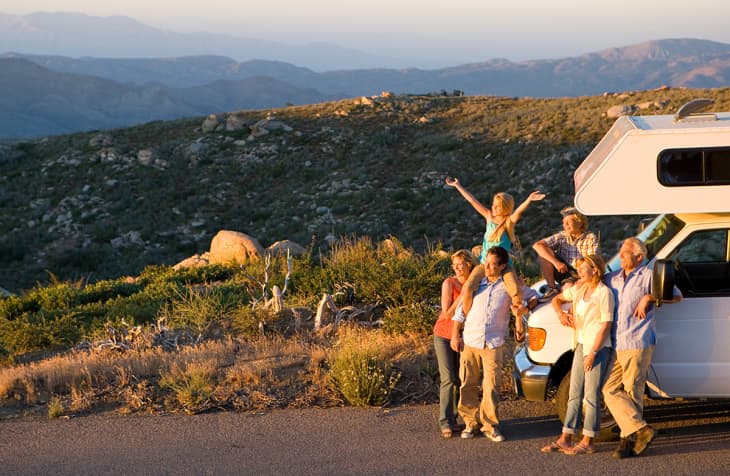These Two Simple Tips Will Save Your Next Family Vacation or Group Trip

It’s a scene that makes my blood run cold: I wake up in my room in the AirBnB, head to the kitchen, and before I’ve had that first blessed sip of coffee I’m hit with the questions:
“So what’s the plan today? What are we doing for breakfast?”
I’m a “planner” person — I enjoy organizing group trips with friends or family and brainstorming options for things to do. But I don’t like planning every single thing about the trip, and sometimes the group looks to self-proclaimed planners as their de facto tour guides. Planners might find themselves scrambling to research and coordinate the group’s itinerary every day from the break of dawn until everyone hits the pillows at night. Exhausting.
But I’ve learned a thing or two in my days as a trip-taking planner type. Here are two simple ways to take some of the heat off the planners and make group trips with family or friends go much more smoothly.
Rule 1: Mornings are free time.
Group trips require near-constant togetherness and social energy, which can be draining for even the most extroverted types (hi). Family members especially might want to spend “quality time” together every second of the day. But the time’s not quality when people are feeling edgy from not being able to recharge. Mornings — when people can start their day with some semblance of their typical routine and calm — should be allotted as free time.
People can go grab a coffee, take a walk, sit and read, get a workout in, whatever, and no one gets to be irritated that they’re not sticking with the group or immediately launching into collective activities for the day. Morning time is sacred. Some people might choose to do things together. Great! Everyone should agree, though, that morning time is Do Your Own Thing Time — it’s a period for personal choice and for no questions. Just pick a designated time when everyone comes back together as a group.
Rule 2: Everyone suggests an activity and a meal.
It’s practically a cliche at this point: Trying to figure out where to eat with a group of people is the worst. You spend 40 minutes Googling or Yelping nearby restaurants, considering people’s preferences or food restrictions, and wondering whether the person who says, “I’m good with anything” would really be good with anything. Meal planning — whether you go out or stay in and cook — is a chore. Everyone on the trip should pitch in to make it less annoying.
Say you have four vacation days planned and you have two meals a day to worry about (breakfast falls under Do Your Own Thing time). You’ve got eight slots to fill: Everyone on the trip has to fill at least one, depending on the number of slots and people, with a restaurant or a cooking option. Throw everyone’s inputs together on a shared document. You might end up collectively agreeing on something not on the list, but the list helps you avoid starting at square one every time the group has to eat.
The same goes for activities. For each day of the trip, I recommend having two options, so collect enough options from your group to fill the slots. On day one, for example, the options could be “museum visit” or “walking tour.” Day two: “beach time” or “shopping downtown.” Everyone picks an option, or maybe they decide to stay home and chill or do something else. No one’s beholden to the list, but if you at least have a document populated with ideas from people on the trip, no one has to worry about coming up with satisfactory things to do. You can agree to all come back together at mealtime, and then everyone can share what they did with their day (on family trips especially, you need more to talk about than politics, am I right?)
Make these suggestions in the weeks leading up to the trip. Don’t overcomplicate it for people who might be disgruntled at the idea of “doing work” for their vacation: They just have to search “things to do/places to eat in [location]” and add to the list whatever piques their interest. Someone’s going to have to do this at some point — if everyone just helps ahead of time, the less valuable vacation time you’ll waste on planning later and ultimately, the happier everyone will be. That’s the kind of vacation worth looking forward to.